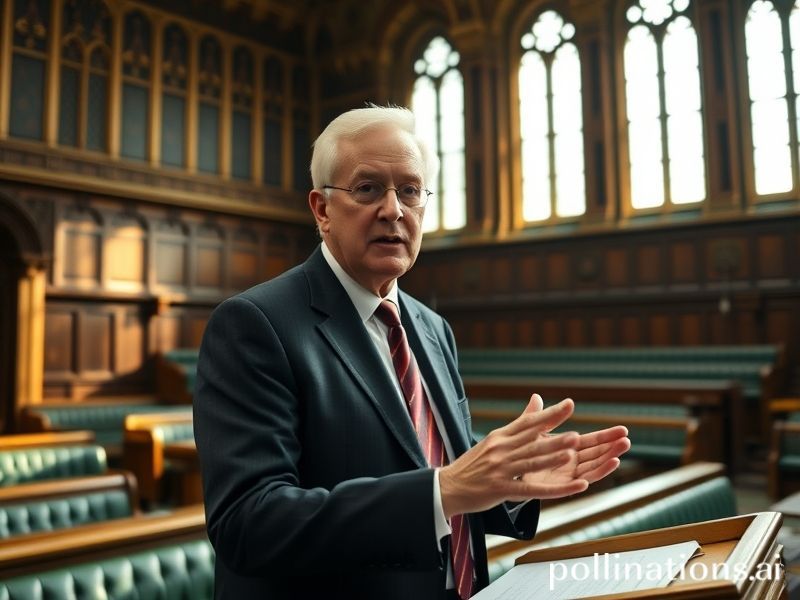Pat McFadden: The Quiet Scotsman Teaching the World to Smile While Rome (and GDP) Burns
Pat McFadden, the mild-mannered Scot now orchestrating Downing Street’s message machine, has become the unlikely Zelig of 2024’s global rebrand wars. While Washington rehearses its Biden-to-Trump sequel and Paris polishes Macron’s Jupiter complex for Olympic season, McFadden is quietly exporting a very British product: the art of looking boring while everything burns. International observers—those who still bother—have started calling it “McFaddening”: the process by which a nation’s economic flatline is gift-wrapped in bullet-point decency and sold back to voters who’ve run out of energy to riot.
In Brussels, officials sipping warm white wine at yet another “Future of Europe” reception note that McFadden’s elevation from Treasury fixer to Starmer’s enforcer is less personnel shuffle than geopolitical mood ring. The EU’s own spin doctors, exhausted after years of explaining why Italian bond yields are actually sexy, watch with envy as McFadden reframes 0.1 % growth as “cautious optimism.” One Commission staffer was overheard muttering that if McFadden ever defected, they’d make him Secretary-General overnight—if only to stop him leaking the continent’s entire strategic gas reserves on background.
Tokyo, meanwhile, has dispatched its sharpest analyst from the Ministry of Economy, Trade and Industry to observe what the Japanese press call the “McFadden Doctrine”: never waste a crisis when you can spreadsheet it into submission. Japanese salarymen, veterans of thirty years of polite deflation, recognize the technique—there is something profoundly reassuring about a man who can deliver terrible news in the tone of a delayed commuter announcement. The Yomiuri Shimbun even ran a cartoon of McFadden bowing slightly as the British Isles sink, captioned “Apologies for the inconvenience during these unscheduled tectonic adjustments.”
Down in the Global South, McFadden’s shadow is longer and darker. Nigerian policy forums dissect his early-2000s role designing Gordon Brown’s debt relief deals for Africa—deals that, depending on who’s holding the microphone, either rescued a continent or merely rescheduled its misery with better fonts. In Nairobi, veteran journalist Achieng Maende jokes that McFadden’s spreadsheets are like British weather: they look harmless until you realize they’ve been shaping your harvest for a decade. “He’s the IMF in human form,” she laughs, “only with worse jokes and a better tailor.”
Of course, the wider significance is that McFadden is not really about Britain anymore; he is the pilot episode for a grim new genre of governance. From Ottawa to Canberra, centrist parties are cloning his template: speak softly, carry a balanced budget, and hope the populists trip over their own pitchforks. The joke is that it might actually work—at least until the next inevitable crisis arrives and demands a villain with better hair.
Which brings us to the cosmic punchline: in an era when politics is indistinguishable from Netflix programming, McFadden has been cast as the anti-hero who doesn’t binge-watch Armageddon. He simply schedules it for the following fiscal year and recommends a modest contingency fund. The world watches, half-horrified, half-impressed, like passengers applauding when the pilot announces the engines are only on fire “within acceptable tolerances.”
So when historians of late capitalism gather in some flooded archive circa 2080, they may well conclude that Pat McFadden was less a man than a coping strategy: the moment the West decided that if it couldn’t fix the future, it would at least make the quarterly report readable. Until then, keep an eye on the currency markets; every time McFadden smiles on the evening news, somewhere a hedge-fund algorithm updates its apocalypse timeline by five minutes.







